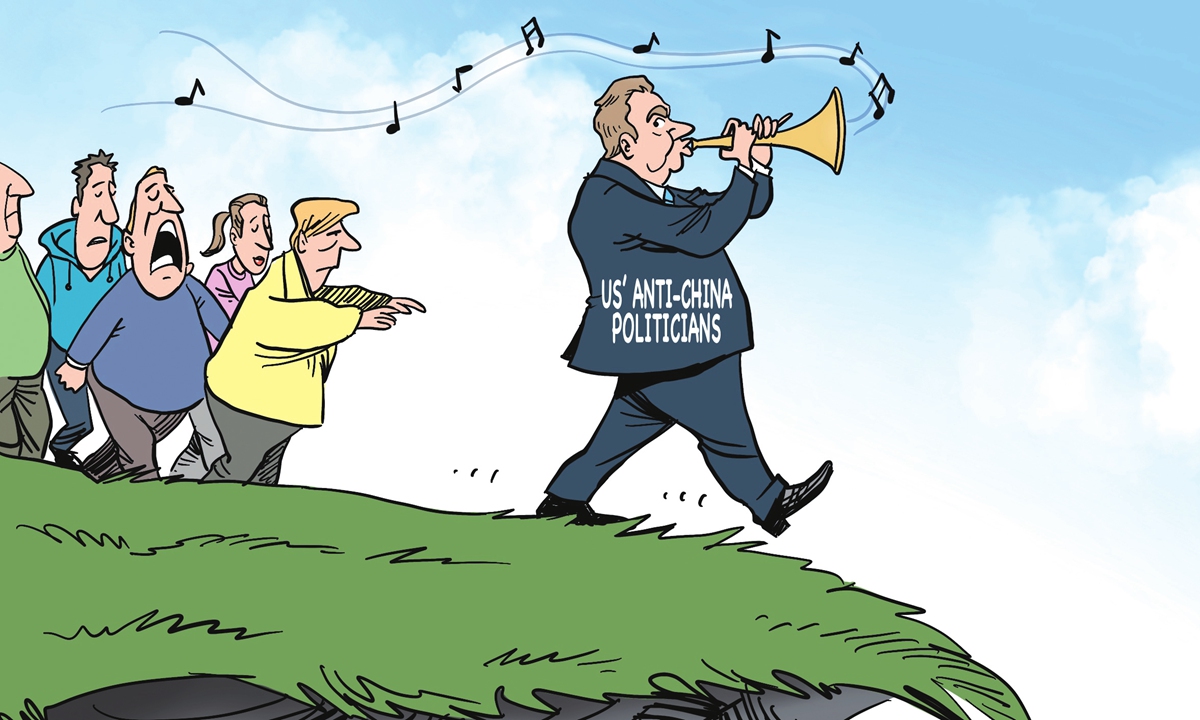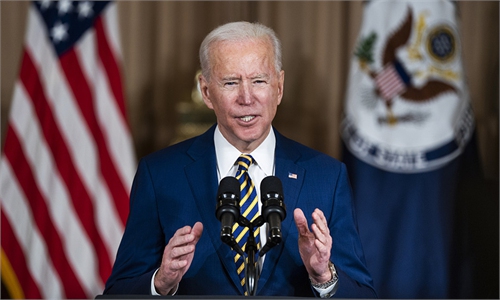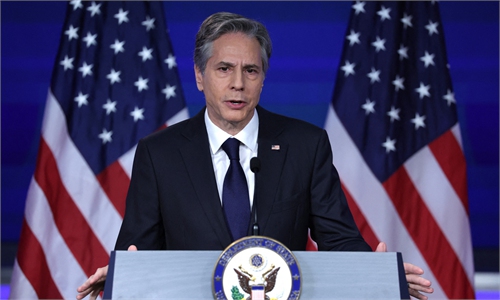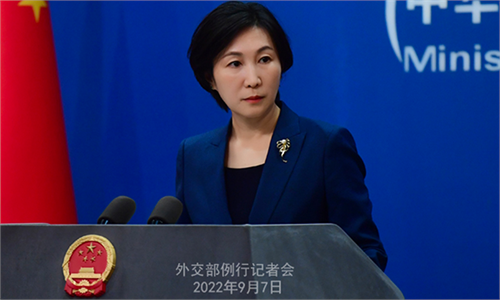
Illustration: Liu Rui/Global Times
The designation of the balloon as a "spy" balloon was one created by officials and relayed by journalists, and never one based on actual empirical evidence. Despite this, the assumption successfully established itself as conventional understanding, showing the power of the US to readily manipulate global discourse with the goal of smearing China. As a show of protest to the events, US Secretary of State Antony Blinken cancelled his upcoming trip to Beijing.
The "spy balloon saga" is a deliberately orchestrated act of political drama by the US with the goal of purposefully weaponizing fear, paranoia and mass hysteria in the name of discrediting China. American politics, both at home and abroad, is driven by the covert weaponization of "drama" in a highly aggressive and hysterical manner, unparalleled throughout the world. In doing so, American politicians and public figures on both sides of the spectrum readily smear each other with highly defamatory and exaggerated allegations, as well as whipping up covert fear, paranoia, and conspiracy theories.
As some examples of how this works domestically, Democrats accused Donald Trump of collusion with Russia, Republicans pushed claims the 2021 election was rigged. What is notable about this behaviour is that in each incidence, there is seldom any evidence to support the claims which are pushed, yet they otherwise become conventional understanding in the respective political camp. What it also goes to show is that in recent decades, US political polarization has become inherently worse. The country has become more divided and as such the scale of dramatized political conflict has only increased.
However, beyond domestic politics, this weaponization of fear and paranoia has already been a longstanding trait of US foreign policy, except it has been less notable as foreign affairs are subject to an elite consensus and relayed through the media. Washington deliberately ferments mass hysteria and paranoia to manufacture support for its foreign policy goals, and the US public as a majority tend to follow this manipulation. Usually, this involves depicting a particular country or ideology as a critical threat to the security and values of the US, and again there is often an absence of evidence to go with it.
While the term "McCarthyism" comes to mind, the most explicit example of all is the claim Saddam's Iraq possessed "weapons of mass destruction" and was a critical threat to the US. Hence now, the US has designated China as "the enemy", and therefore mass paranoia is cultivated pertaining to all things China within the United States, usually used selectively as part of the US's economic war against the country. For example, a recent "think-tank" published a report claiming that Chinese manufactured fridges and other household consumer products could be engaging in "espionage". These claims often follow a very dubious "guilt by association" logic, and are used to legitimate sanctions in the name of US protectionism.
However, the "spy balloon saga" is not just a product of foreign policy choices, but a dangerous by-product of how growing domestic polarization is leading to greater foreign policy destabilization. In other words, the toxicity of the American domestic scene is preventing the administration from taking a pragmatic, stable and reasonable approach to China because it is obligated to "appear tough," therefore its decision making is fundamentally irrational. Once the news of the balloon was published, the usual mass hysteria was amplified by US politicians, which subsequently gave the administration no place to hide save it took a "tough" approach, this meant cancelling diplomacy and shooting it down for optics. The product is that despite Blinken talking of so-called "guardrails", it is the US who is destabilizing the bilateral relationship at the whim of domestic political pressures, and it is precisely this reason why all engagement the US has pursued with China has not had any practical effects, and why such meetings are often followed or pre-empted with sanctions.
In conclusion, the toxicity of US domestic politics is proving to be a dangerous destabilizing force. America is lockstepped into a paranoid, aggression and uncompromising approach by China, and there is no way for the Biden administration to escape it. This is a testament to how US style democracy, utilizing mass drama, hysteria, misinformation and smear tactics, is an inherently dangerous and unstable system which is exporting its problems to the rest of the world.
The author is a political and historical relations analyst. opinion@globaltimes.com.cn



